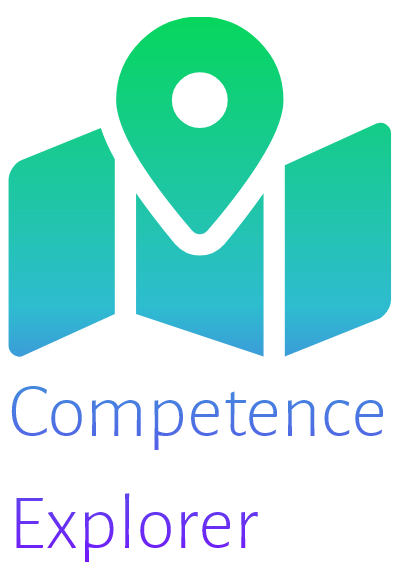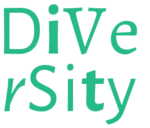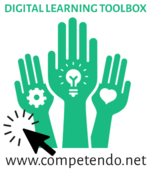Difference between revisions of "Group-related and Interpersonal Aspects"
From Competendo - Digital Toolbox
m (→In Practice:) |
m (→Diversity) |
||
| (14 intermediate revisions by the same user not shown) | |||
| Line 1: | Line 1: | ||
<div class="methodpage-content"> | <div class="methodpage-content"> | ||
| − | <div class="teaser-text">[[File:Understanding-groups.png | right | | + | <div class="teaser-text"><div style="background: #eee; float: left; padding: 0px 5px 0px 5px; margin-right: 5px;"><i class="fas fa-arrow-left"> </i> [[Understanding]]</div> [[File:Understanding-groups.png | right | 190px|link=Group-related and Interpersonal Aspects]]Competence-centered learning is a social and collaborative process. It helps learners to navigate through social life, in particular, to participate and to overcome social challenges (together). It can best be learned in a horizontal way, facilitated by ''facilitators'' instead of instructors. This section includes theory aspects of the building bricks of such collaborative learning spaces, especially teamwork, group dynamics, communication, diversity and conflict management. </div> |
<hr class=boldline> | <hr class=boldline> | ||
==Articles== | ==Articles== | ||
| Line 15: | Line 15: | ||
<i class="fas fa-glasses"></i> [[NEO Personality Inventory]]<br> | <i class="fas fa-glasses"></i> [[NEO Personality Inventory]]<br> | ||
<i class="fas fa-glasses"></i> [[Cognitive Style]]<br> | <i class="fas fa-glasses"></i> [[Cognitive Style]]<br> | ||
| + | <i class="fas fa-glasses"></i> [[The Iceberg Model]]<br> | ||
<i class="fas fa-glasses"></i> [[Time Management Styles]]<br> | <i class="fas fa-glasses"></i> [[Time Management Styles]]<br> | ||
<i class="fas fa-glasses"></i> [[Personality Styles]]<br> | <i class="fas fa-glasses"></i> [[Personality Styles]]<br> | ||
| Line 27: | Line 28: | ||
[[File:Communication-competendo.png| 200px |left|link=Group-related and Interpersonal Aspects]]Communication skills are extremely important in order for there to be an efficient common understanding and appreciation amongst partners in any group. This section introduces models that illustrate conditions for successful communication and offers methods for gaining communicative competency.<br> | [[File:Communication-competendo.png| 200px |left|link=Group-related and Interpersonal Aspects]]Communication skills are extremely important in order for there to be an efficient common understanding and appreciation amongst partners in any group. This section introduces models that illustrate conditions for successful communication and offers methods for gaining communicative competency.<br> | ||
<div class="mw-collapsible mw-collapsed" data-expandtext="What's inside?"> | <div class="mw-collapsible mw-collapsed" data-expandtext="What's inside?"> | ||
| − | <i class="fas fa-glasses"></i> [[Interpretation]]<br> | + | <!-- <i class="fas fa-glasses"></i> [[Interpretation]]<br> --> |
<i class="fas fa-glasses"></i> [[Four Sides of a Message]]<br> | <i class="fas fa-glasses"></i> [[Four Sides of a Message]]<br> | ||
<i class="fas fa-glasses"></i> [[Habitus: Grammar of the social framework]]<br> | <i class="fas fa-glasses"></i> [[Habitus: Grammar of the social framework]]<br> | ||
<i class="fas fa-glasses"></i> [[Language without words: Body language]]<br> | <i class="fas fa-glasses"></i> [[Language without words: Body language]]<br> | ||
| − | <i class="fas fa-glasses"></i> [[Powerful Listening]] | + | <i class="fas fa-glasses"></i> [[Powerful Listening]]<br> |
| + | <i class="fas fa-glasses"></i> [[The Iceberg Model]] | ||
</div> | </div> | ||
| Line 43: | Line 45: | ||
<br> | <br> | ||
<div class="mw-collapsible mw-collapsed" data-expandtext="What's inside?"> | <div class="mw-collapsible mw-collapsed" data-expandtext="What's inside?"> | ||
| − | + | <i class="fas fa-glasses"></i> [[Affirmative Action]]<br> | |
| − | <i class="fas fa-glasses"></i> [[ | + | <i class="fas fa-glasses"></i> [[AI and bias]]<br> |
| − | <i class="fas fa-glasses"></i> [[Diversity | + | <i class="fas fa-glasses"></i> [[Anti-Bias and Anti-Discrimination]]<br> |
| + | <i class="fas fa-glasses"></i> [[Diversity as a Learning Culture]]<br> | ||
<i class="fas fa-glasses"></i> [[Interculture and Transculture]]<br> | <i class="fas fa-glasses"></i> [[Interculture and Transculture]]<br> | ||
<i class="fas fa-glasses"></i> [[Intersectionality]]<br> | <i class="fas fa-glasses"></i> [[Intersectionality]]<br> | ||
| − | <i class="fas fa-glasses"></i> [[ | + | <i class="fas fa-glasses"></i> [[The Iceberg Model]]<br> |
| − | |||
| − | |||
| − | |||
<i class="fas fa-glasses"></i> [[Storytelling and Stereotypes]]<br> | <i class="fas fa-glasses"></i> [[Storytelling and Stereotypes]]<br> | ||
<i class="far fa-check-square"></i> [[Checklist: Your Attitude Towards Diverse Participants ]]<br> | <i class="far fa-check-square"></i> [[Checklist: Your Attitude Towards Diverse Participants ]]<br> | ||
| + | <i class="far fa-check-square"></i> [[Checklist: Diversity and Language]] | ||
</div> | </div> | ||
| Line 67: | Line 68: | ||
<i class="fas fa-glasses"></i> [[Managing a Conflict]]<br> | <i class="fas fa-glasses"></i> [[Managing a Conflict]]<br> | ||
<i class="fas fa-glasses"></i> [[Behavior in conflict situations]]<br> | <i class="fas fa-glasses"></i> [[Behavior in conflict situations]]<br> | ||
| − | |||
Latest revision as of 12:08, 22 February 2023
Also interesting:
 Overview of different competence frameworks relevant to lifelong learning.
Online
Overview of different competence frameworks relevant to lifelong learning.
Online
Download: Banner






